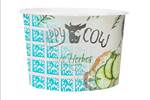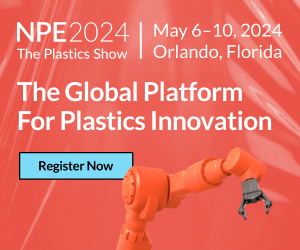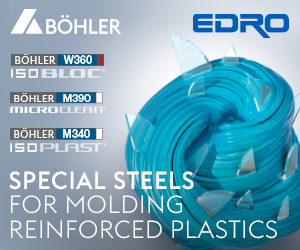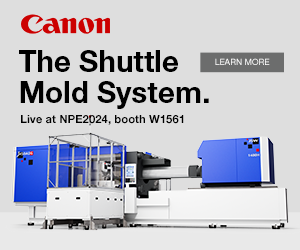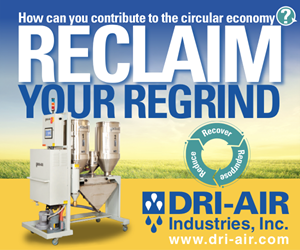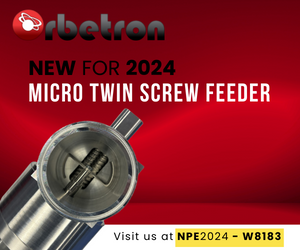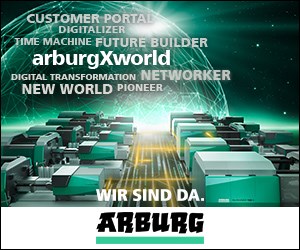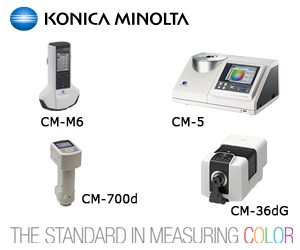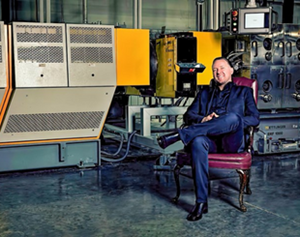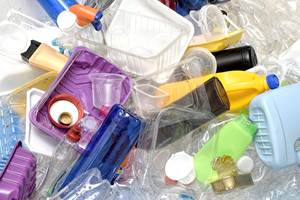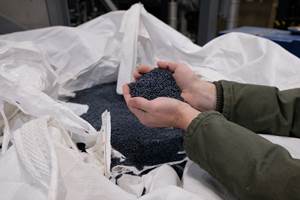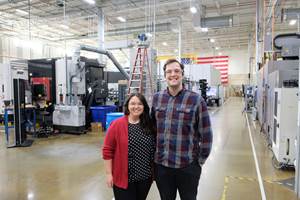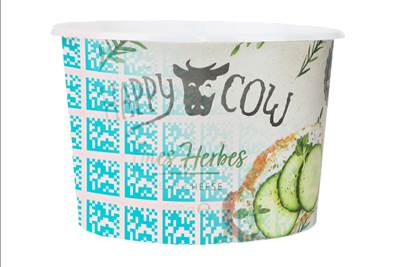Digital Product Passport for Plastic Products Supports Circularity
As part of a series of interviews leading-up to K 2022 Show, VDMA interviews Dr. Benedikt Brenken, director of R-Cycle.
The R-Cycle initiative is creating and testing an open standard for a digital product passport for plastics. VDMA, Germany’s mechanical engineering industry association, recently interviewed Dr. Bededikt Brenken, director of the R-Cycle initiative, as part of a series of interviews leading up to the K Show in Dusseldorf this October. Dr. Brenken described the R-Cycle initiative and explained why product identification and data sharing is so important in the plastic recycling industry.
VDMA: Dr. Brenken, what is R-Cycle and what are its objectives?
Brenken: R-Cycle has two dimensions: on the one hand, it is an open standard for the realization of the digital product passport for plastics. It is also a cross-industry initiative, an association of companies that want to promote and disseminate the digital product passport with corresponding applications. We are already using the standard in initial projects and have been able to demonstrate its effectiveness. It will be presented to the public at the K.
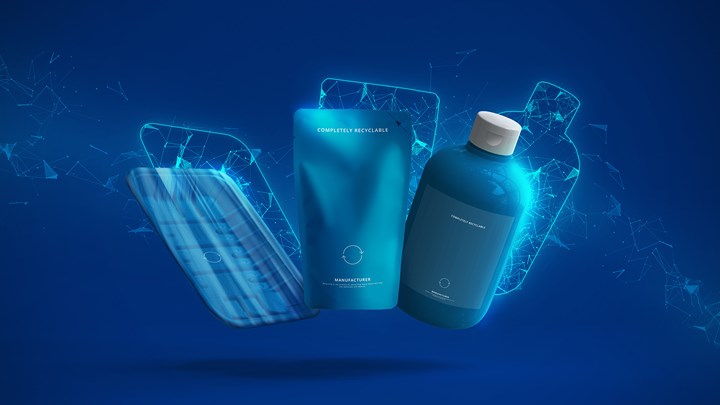
The R-Cycle initiative is focused on standardizing how plastic products are identified.
Photo Credit: VDMA
VDMA: What kind of standard is it?
Brenken: We work together with GS1. This is a non-profit organization that develops open standards for cross-company processes worldwide. Among them are the Global Trade Item Numbers, which we as consumers know as barcodes, plus numbers on most products. This allows products to be identified worldwide. Initially, we asked ourselves, what is the main thing we lack to achieve a circular economy? The answer was: information – for more accurate sorting and high-quality recycling of plastic products. We need to provide this information over the life cycle of each plastic product. If we want to share the information, we need a standard. GS1 already has appropriate standards that we can adapt to the plastics use case.
VDMA: What are plastic-specific adaptations?
Brenken: The first phase was in fact about finding out which data should be collected at all, and which should not. You need certain data about a package so that the sorter knows what it is made of for example and how it can be recycled. On the other hand, it must also be ensured that no data is recorded that would reveal company secrets, such as recipes. We have also discussed all this with other associations and initiatives from the outset because it is important to take into account the interests of the various stakeholders.
VDMA: What does this kind of identification look like?
Brenken: The product passport consists of three things: firstly, an ID number so that the product can be identified. Secondly, data that is recorded for it. We have defined that in the standard. The third is the marking that brings the product and ID number together – a barcode, a QR code, a digital watermark. We're open to all kinds of marking technologies, and we're working with different vendors and initiatives here, such as the HolyGrail 2.0 digital watermarks initiative. Our focus at R-Cycle is to capture and provide data along the life cycle. Depending on the requirements, we can then draw on different marking technologies.
VDMA: How did the idea for R-Cycle come about?
Brenken: The idea originated at Reifenhäuser. We develop technologies there for packaging that is easier to recycle. During the process, a basic problem emerged: What good is it if we develop fully recyclable packaging and our customers bring it to market, but the packaging still ends up in thermal recycling? In the current waste sorting process, packaging is only recognized as recyclable to a very limited extent. Sorting is not sufficiently precise, and yet all the information needed for better recycling is available in our machines and systems; we already use it to control the processes. Why therefore shouldn't we be able to use this information across companies for recycling purposes? With this information, you can sort plastic waste better and achieve higher recyclate qualities. Such recycling-related information should be included with every product. That was the beginning of R-Cycle.
VDMA: What pilot projects are already in place?
Brenken: One example is the raw material bags we’ve produced with Exxon Mobil that we continuously moved in circles. That means they were produced and directly recycled again. Thanks to R-Cycle's digital product passport, it was possible to read out the recycling-relevant packaging properties in the recycling process. This information makes it possible to selectively feed used bags into the recycling process as raw material. Together with other partners, our partner Brückner Maschinenbau has produced a chips bag that consists of a film with a metal coating and is still fully recyclable. In the end, the recyclate became a foil again. These are two of many examples that show how the use of the digital product passport enables data-based sorting and recycling.
The potential applications are not limited to packaging either: for a project with the German Society for International Cooperation (Gesellschaft für Internationale Zusammenarbeit – GIZ) and the Chinese Ministry of Agriculture, we have produced agricultural film that has a digital product passport. The scan registers which farmer applies which film on which field. When the film is collected, it is scanned again and a quantity balance can be drawn up of how much film was applied, and how much was collected, which ensures that all the film is collected again and recycled.
VDMA: So, the digital product passport benefits extend beyond the circular economy?
Brenken: There is much more potential. and we want to develop it further. The ambitious goal, of course, is to use the data to recycle better, but it will take some time before this is really applied on a large scale, and the corresponding infrastructures are established. In the meantime, however, we want to take advantage of the digital product passport. It can be used, for example, to assess the recyclability of a product. The data can be used to calculate the carbon footprint of a product or to optimize processes in the sense of Industry 4.0 for instance. These are all applications that we are discussing and implementing with various partners. More than 20 market-leading companies have already joined our R-Cycle Community, and we are constantly looking for more to test the potential of digital product passports in as many applications as possible.
VDMA: Can we state that the digital product passport is a prerequisite for the circular economy?
Brenken: Absolutely. Circular economy does not work without sharing relevant information between the stakeholders involved along the life cycle. It is not enough to provide information about the product only at the end of life. Machines networked with R-Cycle can obtain precise information about the respective upstream products from the digital product passport and supplement their own data accordingly, adding value for processors in the downstream process. Finally, with R-Cycle we are using the potential of digitization for sustainable material cycles, as is also politically demanded within the framework of the Circular Economy Action Plan of the European Union.
Related Content
A Recycling Plant, Renewed
Reinvention is essential at Capital Polymers, a toll recycler that has completely transformed its operation in a short period of time.
Read MoreCompatibilizers Aid Recycling & Upcycling of Mixed Resins
Compatibilizers are proving their worth in boosting critical properties such as impact/stiffness balance of PCR and PIR blends of polyolefins and other plastics.
Read MoreNew Facility Refreshes Post-Consumer PP by Washing Out Additives, Contaminants
PureCycle prepares to scale up its novel solvent recycling approach as new facility nears completion.
Read MoreScaling Up Sustainable Solutions for Fiber Reinforced Composite Materials
Oak Ridge National Laboratory's Sustainable Manufacturing Technologies Group helps industrial partners tackle the sustainability challenges presented by fiber-reinforced composite materials.
Read MoreRead Next
Digital Watermarking Consortium Advances Technology for Sorting & Recycling Plastics
Europe’s Digital Watermarks Initiative HolyGrail 2.0 gains new members and advances to Phase II pilot projects.
Read MoreBeyond Prototypes: 8 Ways the Plastics Industry Is Using 3D Printing
Plastics processors are finding applications for 3D printing around the plant and across the supply chain. Here are 8 examples to look for at NPE 2024.
Read More

